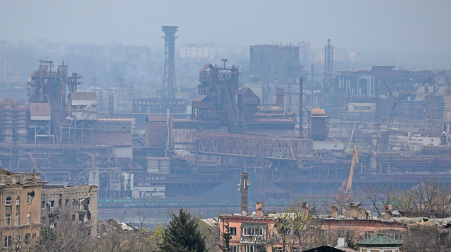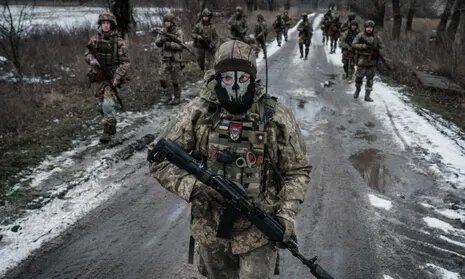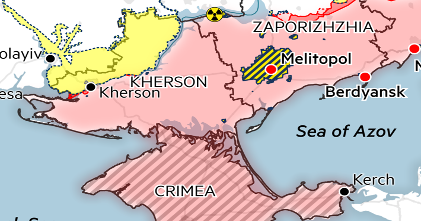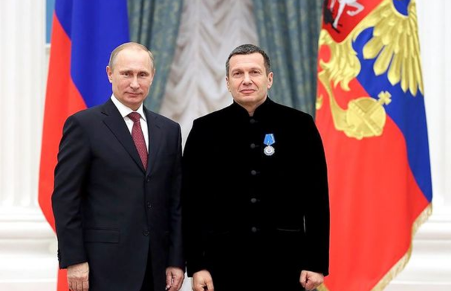By Nikolas Markoulis and Stathis Poulantzas
Introduction:
The global status quo was shaken on February 24 2022, when Vladimir Putin ordered his tanks across the Ukrainian border. Almost a year later, little has gone to plan for the near-autocratic Russian leader, since Ukraine has been able to lead a gallant defence against the odds. Successful counter-offensives, launched by Kyiv in the East and South of the country, keep Putin under significant pressure, and the outcome of the war highly uncertain. A radical deterioration of relations with the West, along with protests in Russia, are proving difficult to explain for Putin as Russia’s “Creeping Defeat”, seems closer to becoming a reality than ever. These circumstances lead one to wonder; how have we come close to witnessing Ukraine’s unlikely victory against its chronic suppressor? And how does the man responsible for the Western energy crisis react to “walking towards defeat and failure”?
How did we get here?
Relations between the two nations reached rock bottom in 2014, when the Revolution of Dignity in Maidan square led pro-Russian leader Viktor Yanukovych’s removal, which in turn triggered a retaliatory response from Moscow, which evolved into the annexation of Ukraine's Crimea. As a result, pro-Russification ethnic groups were able to build on their pre-existing dominant influence in East Ukraine, particularly in the Donbas region. The failure of separatist Ukrainian governments and movements - such as the Azov Regiment - to win the hearts and minds of inhabitants of the Donbas region, which had a “pro-Russian electorate”, led to fighting between partisans, resulting in 14,000 deaths between 2014 and the beginning of the war.
The outbreak of the conflict in 2022 relates heavily to the behaviour of the West. This is because in 2021 Ukraine’s current President, Volodymyr Zelenskyy, expressed interest in his country’s inclusion in the North Atlantic Treaty Organisation, and later the EU. The Kremlin felt threatened by the potential inclusion of Ukraine in NATO, on the basis that it might aid ethnic Ukrainian movements to assert dominance in the (somewhat self-governed) Donbas region, and break the Minsk Agreements of February 2015, which aimed to stop the Donbas conflict fought between Ukrainians and Russian separatists. Despite several rounds of discussions between Russia and the US, the former still felt threatened by Ukraine’s inclusion, due to consistent NATO deployment in Eastern Europe and the Baltic Region.
"Putin's approval ratings reached an all-time low after 20 years in power."
At the same time, the interior turmoil in Russia was and remains significant, with Putin’s approval ratings reaching an all-time low after over 20 years in power. This prompted Putin to resurrect a long-dormant Russian nationalism, in order to re-emerge in the polls as the nation’s undisputed leader. Against this backdrop, he recognised the Ukrainian regions of Luhansk and Donetsk as fully independent on the 21st of February 2022, and invaded the country 3 days later.
By November 2021, according to the Ukrainian government, about one million soldiers had been deployed across the Eastern and Southern provinces of Luhansk and Donetsk. The Kremlin attempted to persuade Russians and the West that the sole goal of the invasion was to “ensure denazification and demilitarisation”, and though this was not completely wrong with regards to its aims of disarming the disputed regions, its claims about Ukraine’s denazification cannot be backed with any concrete evidence, and account for clear propaganda.

Putin had warned the EU Commission President Jose Emanuel Barroso in 2014, that he could capture Kyiv within 2 weeks. But even in the first days of the conflict, it became obvious that the Russian army would greatly struggle against their opposition. The eventual ‘Creeping Defeat’ that Moscow is facing now in Ukraine can be explained by many factors.
For a start, the West never gave up on the situation with Ukraine, but instead heavily involved itself in the crisis. An “ethical movement” supporting Ukraine was launched, with parliament buildings being lit in the colours of the Ukrainian flag, sports teams wearing yellow and blue armbands, and even the country winning the Eurovision song contest of 2022, as a result of the popular vote. Meanwhile, claims from Zelenskyy that Russia is carrying out a second Holodomor, described by Robert Conquest as the first manmade famine in history, accelerated the West’s humanitarian response even further. Furthermore, Western support didn’t simply stay in an ethical sphere; Europe and NATO carried on supporting Ukraine’s cause - and in turn their own interests of weakening Russia and gaining further regional influence - through a very familiar tactic: armament.
"Ukraine is receiving plenty of war materials to improve its chances of military success."
A series of weapons have, and still are, headed to Kyiv from the West. Earlier this year, President Zelensky received the M270 Multiple-Launch Rocket System, anti-tank weapons and Mastiff armoured vehicles. He also recently welcomed Germany’s long-anticipated decision to send its leopard tanks, the number of which will reach up to 100 by next year; Ukraine is hence receiving plenty of war materials to improve its chances of military success.
In parallel, the Kremlin’s ill-organised war effort has increased Kyiv’s chances to emerge victorious from the conflict. Specifically, Moscow is suffering from major corruption in the army sector, meaning that despite billions of dollars being spent on the modernisation of its armed forces in the past decade, much of its technology still remains outdated and faulty, such that in that much of Russia’s military technology cannot compete with the Western equivalents. Furthermore, Putin’s war machine has been proven to be lagging behind the West in operations such as “certain complex tactics such as combined arms operations and suppression of enemy air defences” (Steve Piffer, William J. Perry, Centre for International Security and Cooperation, Stanford University). At the same time, many Russian soldiers - especially those who have been conscripted later in the war effort - are badly trained and equipped.

Vladimir Putin’s overestimation of Ukrainians’ “Russianness” has heavily contributed to Russia’s failure on the battlefield. The long-serving leader was arguably caught up in his own propaganda that “the Ukrainian nation does not exist except in subordination to Russia” and would, consequently, not strongly oppose the Russian army due to a perceived lack of patriotism and sense of a Ukrainian identity (Daniel Fried, Weiser Family Distinguished Fellow, Atlantic Council). The resistance he was faced with, however, has indeed been sufficient to hold the Russian advances back. Moreover, this Ukrainian passion to defend their nation is in direct contrast to the disinterest, if not opposition, of most Russians fighting in Putin’s war effort. Despite heavy propaganda, thousands of youngsters are attempting to flee the country, while most Russians on the front line are fighting passionlessly, feeling that their activities lack any real purpose (Daniel Fried, Weiser Family Distinguished Fellow, Atlantic Council).
Evidence for the above can be seen easily on the map below where the Ukrainian forces are believed to be closing in towards the Khakhova dam in the Kherson region, just North of Crimea and West of Zaporizhzhya Atomic Power Plant.

How is Putin handling his increasingly likely failure?
As the duration of the war nears a year from its outbreak, Vladimir Putin is changing his narrative about expecting a short and easy victory on the battlefield, and is now seeking explanations for his increasingly likely failure. To begin with, the Russian leader seemed to be attempting to divert the attention of both Russians and the international community from the war by blaming the West, as the Kremlin increasingly demonises the new form of Ukrainian nationalists, likening them to Nazis, and blames the West for providing them with humanitarian and military aid. In particular, Sergei Nechayev, the Russian ambassador in Berlin, has claimed that Germany’s decision to provide Ukraine with Leopard tanks signifies an unequivocal refusal of the country to recognize its historical responsibility to the Russian people for the terrible, timeless crimes of Nazism. Clearly, therefore, the Putin administration is attempting to divert the Russian and international focus away from its own actions and towards vilifying Ukraine and the West.
Another example demonstrating this situation can be Vladimir Solovyov, a very famous ally of Putin, TV propagandist and rhetorician, who has recently characterised the Western leaders as compassionate to Nazism and accused them of having a “short memory of history”. Solovyov has claimed that the problems of Russia’s ‘military operation’ in Ukraine are purely a result of the NATO powers' provision of arms to its enemy, and refuses to admit that the bad organisation and strategic plan of the Russian army, as well as the Kremlin’s underestimation of its enemy, have largely led to Russia’s ‘Creeping Defeat’.

Further, as the war has progressed, Putin has made an increasing number of threats towards the West;for instance, while participating in an extended meeting with the Russian Defence Ministry, he exclaimed that Russia would not “watch idly” as the West proceeds to chase its targets in the region. Indeed, Putin even went so far as to warn that the Russian Federation would consider punishing the West for its assistance to Ukraine with the use of nuclear weapons. The behaviour of the aggressor’s leader is clear evidence of Russia’s internal chaos, and shows how the government, faced with the increasingly likely prospect of defeat, is seeking desperate ways to halt Western aid to Ukraine, hoping in this manner to turn the conflict in its favour. Moreover, Putin’s talk of nuclear weapons is also plainly an attempt to feed the Russian people with parotitic ideals and hatred for the West, thus boosting his promotion of nationalism in order to raise his approval ratings and survive in office.
"Whichever way you spin it, Russia is losing this war." - Edward Luce, Financial Times
It is worth pointing out, that Putin has largely avoided any reference to his country losing this major war; while in December 2022 he told the Russian Ministry of Defence that the operation in Ukraine would never be abandoned. However, from his language and comments he does imply the war effort is facing holdbacks as an apparent result of the West’s excessive spending on the armament of Ukraine.
“Whichever way you spin it, Russia is losing this war”, Edward Luce of the Financial Times concluded in September. Putin has insisted that he was not bluffing about Russia’s aims and abilities in Ukraine, though this says much about his limited explanations of Russia’s poor performance. Indeed, as any gambler knows, only a player with a very weak hand will insist he is not bluffing.
Clearly, the Russian leader mostly attempts to avoid any discussion of the fact that his “special operation for the denazification of Ukraine” - since he has never called it an invasion - is failing. However, when he needs to refer to it, he mostly indicates that the problems of the operation are consequences of Western intervention in Russian affairs, and not Russia’s own faults, such as the poor supply of soldiers or shortages in stockpiles of ammunition.
Bibliography:
Books
The Dream of Europe: Travels in the twenty-first century: Amazon.co.uk: Mak, Geert, Waters, Liz: 9781787302433: Books (no date) The Dream of Europe: Travels in the Twenty-First Century: Amazon.co.uk: Mak, Geert, Waters, Liz: 9781787302433: Books. Available at: https://www.amazon.co.uk/Dream-Europe-Geert-Mak/dp/1787302431(Accessed: January 23, 2023).
Al Jazeera (2016) Putin dismisses powerful chief of staff Ivanov, Vladimir Putin News | Al Jazeera. Al Jazeera. Available at: https://www.aljazeera.com/news/2016/8/12/russias-vladimir-putin-dismisses-sergei-ivanov (Accessed: January 26, 2023).
Osprey.com (no date) Armies of Russia's war in Ukraine, Osprey Publishing. Available at: https://ospreypublishing.com/uk/armies-of-russias-war-in-ukraine-9781472833440/ (Accessed: January 26, 2023)
Conquest, R. (1986) The harvest of sorrow: Soviet collectivization and the terror-famine: Amazon.co.uk: Conquest, Robert: 0000195040546: Books, The Harvest of Sorrow: Soviet Collectivization and the Terror-Famine: Amazon.co.uk: Conquest, Robert: 0000195040546: Books. Available at: https://www.amazon.co.uk/Harvest-Sorrow-Soviet-Collectivization-Terror-Famine/dp/0195040546 (Accessed: January 25, 2023).
Articles
Dobrokhotov, R. (2020) Putin's rating is collapsing as anger grows in Russia, Vladimir Putin | Al Jazeera. Al Jazeera. Available at: https://www.aljazeera.com/opinions/2020/6/17/putins-rating-is-collapsing-as-anger-grows-in-russia/(Accessed: January 28, 2023).
Pandey, S. (2022) How did the Russia-Ukraine conflict start this time?, NewsBytes. NewsBytes. Available at: https://www.newsbytesapp.com/news/world/russia-ukraine-conflict-explained-how-did-it-start/story (Accessed: January 25, 2023).
Treisman, R. (2022) Putin's claim of fighting against Ukraine 'neo-Nazis' distorts history, scholars say, NPR. NPR. Available at: https://www.npr.org/2022/03/01/1083677765/putin-denazify-ukraine-russia-history (Accessed: January 25, 2023).
Nicks, D. (2014) Putin: I could take Kiev in two weeks, Time. Time. Available at: https://time.com/3259699/putin-boast-kiev-2-weeks/ (Accessed: January 24, 2023).
Kirby, P. (2022) Why did Russia invade Ukraine and has Putin's war failed?, BBC News. BBC. Available at: https://www.bbc.co.uk/news/world-europe-56720589 (Accessed: January 27, 2023).
Gans, J. (2023) Russian ambassador: German tanks being sent to Ukraine 'extremely dangerous', The Hill. The Hill. Available at: https://thehill.com/policy/international/3829836-russian-ambassador-german-tanks-being-sent-to-ukraine-extremely-dangerous/ (Accessed: January 27, 2023).
Luce, E. (2022) Believe your eyes: Russia is losing badly, Subscribe to read | Financial Times. Financial Times. Available at: https://www.ft.com/content/a16eb6fe-dbbe-45d0-8f70-cc9baf6ef01c (Accessed: January 26, 2023).
Subramaniam, B. K. <. H. S. (2023, January 19). January 18, 2023 Russia-Ukraine news. CNN. https://edition.cnn.com/europe/live-news/russia-ukraine-war-news-1-18-23/h_5a7955be3aa44bd58a64930344644cbd (Accessed: January 29, 2023).
Ellyatt, H. (2022). How will Russia’s war with Ukraine end? Here are 5 possible outcomes. [online] CNBC. Available at: https://www.cnbc.com/2022/03/08/how-will-russias-war-with-ukraine-end-here-are-5-possible-outcomes.html. (Accessed: January 29, 2023).
Podcasts
Germany releases the Leopards (2023) Spotify. Available at: https://open.spotify.com/episode/4vdjMhKOhUXu7h4Tw7yf0I?si=91c68fe91a4b4892&nd=1 (Accessed: January 30, 2023).
Appendix:
Sky (2022) Ukraine War: Troops at Mariupol Steel Plant 'outnumbered 10 to one' by Russians - as Zelenskyy claims Ukraine would have 'ended the war' with access to weapons, Sky News. Sky. Available at: https://news.sky.com/story/ukraine-war-ukrainian-forces-repelling-russian-attacks-in-east-of-country-as-president-zelenskyy-calls-for-more-comparable-weapons-12594153 (Accessed: February 1, 2023).
Sadid, N. et al. (2023) Russia's invasion of Ukraine in maps - latest updates, Financial Times. Available at: https://www.ft.com/content/4351d5b0-0888-4b47-9368-6bc4dfbccbf5?shareType=nongift (Accessed: January 26, 2023).
Will-Stewart (2023) Putin Ally claims world war 3 has already started - calls for nuclear strikes, mirror. Available at: https://www.mirror.co.uk/news/world-news/vladimir-putin-ally-claims-world-28943813?utm_source=linkCopy&utm_medium=social&utm_campaign=sharebar (Accessed: February 1, 2023).